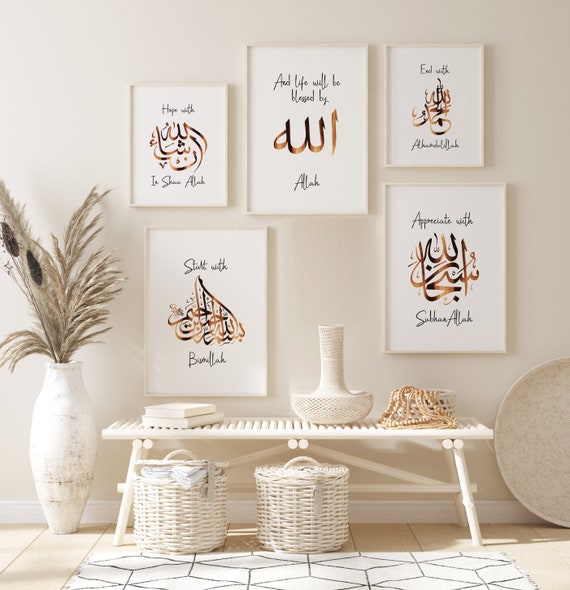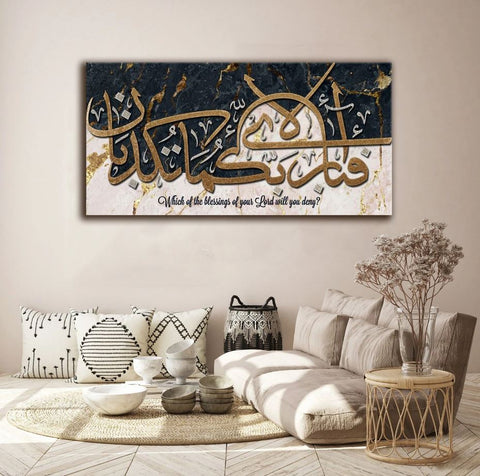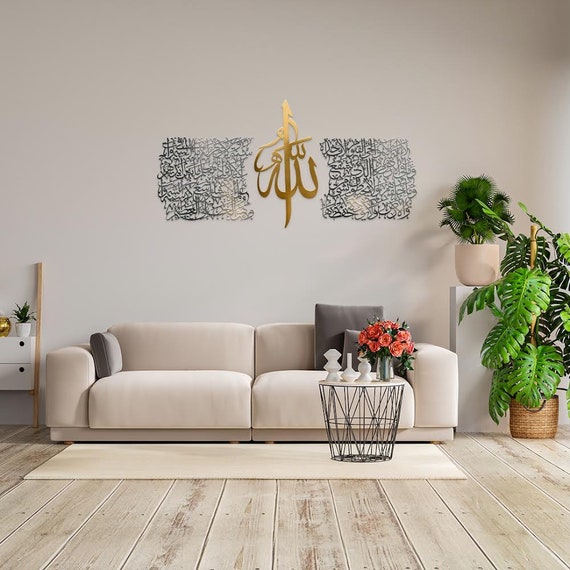Welcome to the world of Islamic decor, where tradition meets modern elegance to create a warm, inviting atmosphere in your home. In this comprehensive guide, we’ll explore various styles, ideas, and practical tips to bring the beauty of Islamic design into your living spaces. Let’s embark on this beautiful journey!
Understanding Islamic Decor
Islamic decor is steeped in rich cultural heritage and history. It often features intricate patterns, geometric designs, and a harmonious blend of colors that reflect the essence of Islamic architecture and art.
Key Elements of Islamic Design
- Geometric Patterns: Fundamental in Islamic art, these designs reflect the infinite nature of Allah.
- Calligraphy: Beautiful Arabic scripts elevate walls and textiles, often quoting verses from the Quran.
- Natural Motifs: Incorporating flora and fauna symbolizes the beauty of God’s creation.
- Color Palette: Rich and vibrant colors often dominate Islamic decor, blending earthy tones with bold hues.
Choosing the Right Islamic Decor for Your Home
When selecting Islamic decor for your home, consider the following:
Defining Your Style
Are you drawn to traditional ornate designs, or do you prefer a more minimalist approach? Understanding your personal style is essential.
Space Considerations
Consider the size of your rooms. Larger spaces can accommodate more elaborate pieces, while smaller spaces may benefit from more subtle decor.
Functional Decor
Incorporate decor that serves a purpose. For instance, a beautiful Islamic wall clock can enhance aesthetics while providing functionality.
Popular Islamic Decor Ideas for Every Room
Living Room Decor
The living room is often the heart of the home. Here are some ideas:
- Islamic Wall Art: Hang framed pieces featuring Islamic calligraphy or geometric patterns.
- Area Rugs: Persian and Turkish rugs imbue warmth and comfort.
- Decorative Pillows: Use cushions with Islamic motifs to add color and texture.

Bedroom Decor
Create a serene space with these decor ideas:
- Bed Canopy: Consider a fabric canopy adorned with Islamic patterns.
- Nightstands: Use carved wooden nightstands that reflect traditional designs.
- Lighting: Choose lantern-style lamps for a warm, ambient glow.
Kitchen and Dining Area
Incorporate Islamic decor in your dining areas:
- Tableware: Use beautifully crafted plates and bowls with Islamic designs.
- Decorative Tiles: Add splashbacks with colorful mosaic tiles.
- Serving Platters: Invest in ornate serving dishes for special occasions.

Bathroom Decor
Even the bathroom can reflect Islamic aesthetics:
- Tiles: Use Arabic patterned tiles for an elegant touch.
- Textiles: Incorporate towels and mats with Islamic motifs.
Incorporating Islamic Decor into Modern Spaces
Many modern homes can benefit from the infusion of Islamic decor. Here’s how to blend these styles seamlessly:
Minimalist Approach
Less is more when it comes to minimalist Islamic decor. Choose a few standout pieces—like a beautifully crafted calligraphy wall hanging—and let them shine against a neutral backdrop.

Mixing Styles
Don’t hesitate to mix contemporary furniture with traditional Islamic decor elements. A sleek sofa can be beautifully complemented by a vintage Islamic rug.
Creating Focal Points
Use Islamic decor to create focal points in your home. A stunning mosque-inspired chandelier can draw the eye and elevate the entire room.

DIY Islamic Decor Projects
If you’re feeling crafty, here are some DIY projects to personalize your space:
Hand-Painted Tiles
Create your own decorative tiles using paint and stencils to reproduce traditional Islamic patterns.
Wall Art Creation
Print verses from the Quran on canvas, or create a collage of Islamic geometric patterns for unique wall art.

Custom Pillows
Purchase fabric with Islamic motifs and sew your own decorative pillows.
Shopping for Islamic Decor
When looking to purchase Islamic decor, consider both online and local options:
Online Stores
Websites like Etsy and Amazon offer a plethora of options, from handmade items to mass-produced goods.

Local Markets
Explore local art and craft markets where artisans sell unique handmade items.
Fabric and Textile Shops
Look for specialty shops that carry textiles used in traditional Islamic decor.

Pros and Cons of Islamic Decor
| Pros | Cons |
|---|---|
| Rich cultural heritage | Can be challenging to blend with non-Islamic styles |
| Timeless beauty | Some pieces can be expensive |
| Diverse design options | May require more maintenance (e.g., intricate patterns) |
| Promotes spirituality | Limited availability in certain areas |
FAQs about Islamic Decor
What are the main characteristics of Islamic decor?
Islamic decor is characterized by intricate geometric patterns, calligraphy, natural motifs, and a rich color palette that draws from nature.
Can I mix Islamic decor with modern design?
Yes! Many modern homes can successfully incorporate Islamic elements. Pair contemporary furniture with traditional Islamic pieces for a balanced look.
Where can I buy Islamic decor items?
You can shop for Islamic decor in local markets, specialty shops, and online platforms like Etsy or Amazon.
What is a good color scheme for Islamic decor?
Rich colors like deep blues, reds, and greens, combined with gold and earthy tones, are excellent choices for Islamic decor.
Are there any DIY options for creating Islamic decor?
Absolutely! You can create hand-painted tiles, custom wall art, and decorative pillows that reflect Islamic designs.